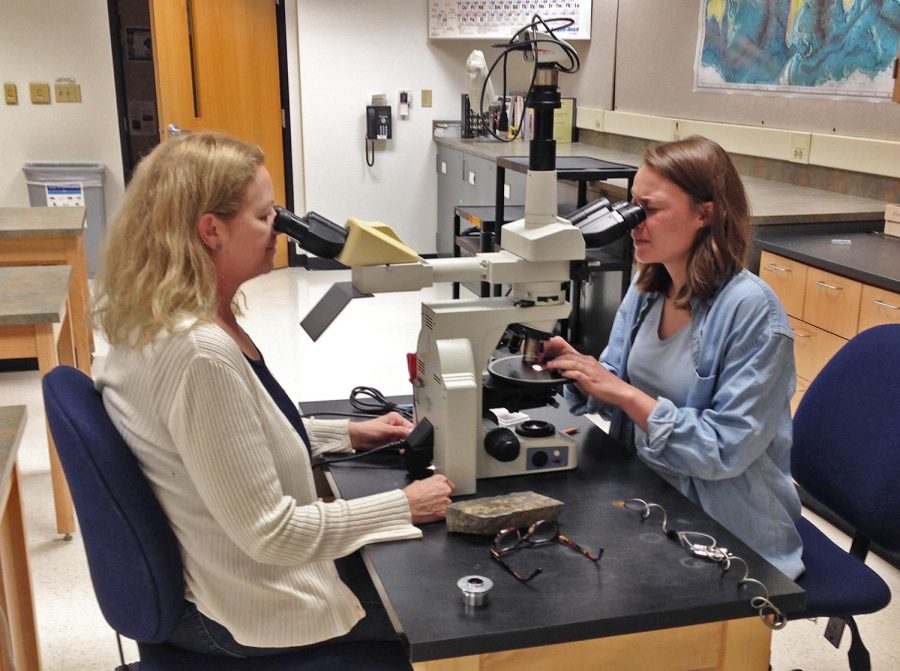Summer research programs
September 6, 2018
Students interested in pursuing scholarly research often find themselves staying at the University for the summer months to engross themselves in a creative endeavor under the mentorship of a faculty member. There are a myriad of different summer research programs with different requirements and funding options.
Research programs
The University offers a wide variety of different research opportunities through the available departmental research programs. Students of all disciplines are encouraged to explore different subject matters and areas of interest. Some of the departments offer research for credit, while others provide senior thesis programs where students are guided through a supervised, independent research experience.
The Bucknell Program for Undergraduate Research (PUR) is a program that provides students monetary awards totaling $3,000 to conduct research under the advising of a selection of faculty members. The awards are determined by a faculty advisory committee, one in which all of the University’s academic divisions are represented. The committee accepts proposals that reflect the goals of PUR, that is “to expand opportunities for students and faculty to collaboratively engage, hands-on, in a scholarly endeavor, together exploring and expanding our collective knowledge, understanding, wisdom, and appreciation.” Students are expected to follow a project that is designed to cover at least eight weeks and must submit a structured research proposal to be eligible for the award.
The Emerging Scholars Summer Research, Scholarship and Creativity Program is a summer research program hosted by The Office of Undergraduate Fellowships & Research. The program is intended to support students’ aspirations to engage in early exploration of their research interests and develop their research skills, all under the guidance of a faculty mentor or group of mentors. Unlike PUR, Emerging Scholars are expected to pursue a variety of different exploratory, creative projects, devoid of the detailed project proposal that is expected of PUR scholars.
The Katherine Mabis McKenna Summer Environmental Internship Program is a program that has been funded at the University since 1982. The students are expected to conduct environmental research with a focus on West Branch of the Susquehanna River Bioregion. The program lasts 10 weeks and students receive a stipend of $3,500. The program currently can support 8-11 students, all of whom also receive free housing on campus.
The Bucknell Geisinger Research Initiative (BGRI) provides students with the ability to become involved in improving patient care and advancing related research. The program supports collaborative research projects and initiatives across a wide range of interests. BGRI is an exemplary example of a joint effort among the two largest institutional leaders in the region. The program gives students the platform to have an impact on the local, regional and national levels.
The Clare Boothe Luce (CBL) Research Scholars program recognizes women majoring in STEM majors, and is intended to help women to advance in their field through closely engaging in transformative research experiences under a faculty mentor. With the hopes to encourage more women to pursue advanced degrees in and careers in physical sciences and engineering, the program provides its scholars with fellowships of $5,000, $1,500 for research and supplies, and funding to support research-related travel or graduate school visits. CBL scholars are expected to conduct full-time research for 10 weeks, participate in CBL Research Scholar programming, and all assessment activities.
Each program is unique in its application completion, proposal process, program duration and funding, and so it is important to review the website for a thorough exploration of each Summer research opportunity.
Student spotlights
Ali Reach
Ali Reach ’20, an Environmental Geosciences major in the College of Arts and Sciences, stayed on campus this summer to work with Professor of Geology Mary Beth Gray, uncovering the folding process of a really large, well-exposed fold at a coal mine in nearby Shamokin, Pa. Reach looked for small grain-scale deformations in the rock under a microscope. The different deformities she looked for are representative of larger tectonic forces that helped shape the region millions of years ago.
“Honestly, I love working at Bucknell over the summer! I’ve done it the past two years and it’s been an absolute blast! It’s such a unique experience because you get to work closely with faculty and learn a lot of skills that you wouldn’t be able to during the school year. Plus, there’s an awesome community of students on campus! 10/10, would recommend,” Reach said.
Jen Borowka
Jen Borowka ’20 is a Neuroscience major in the College of Arts and Sciences. This summer, Borowka completed departmental research under Assistant Professor of Biology Dr. Moria Chambers. She was researching the effect that bacterial infections have on a fruit fly’s mating behavior. Specifically, Borowka looked at the difference in time it takes for the infected male flies and healthy male flies to begin mating with a female and how long they mated for.
“I learned so much through taking my research project into my own hands and working very independently, while at the same time gaining so much knowledge through the guidance of my professor. Being on campus during the summer is also amazing because you get to meet so many people you would not otherwise cross paths with and experience Bucknell without all the typical stress you have during the semester,” Borowka said.





















